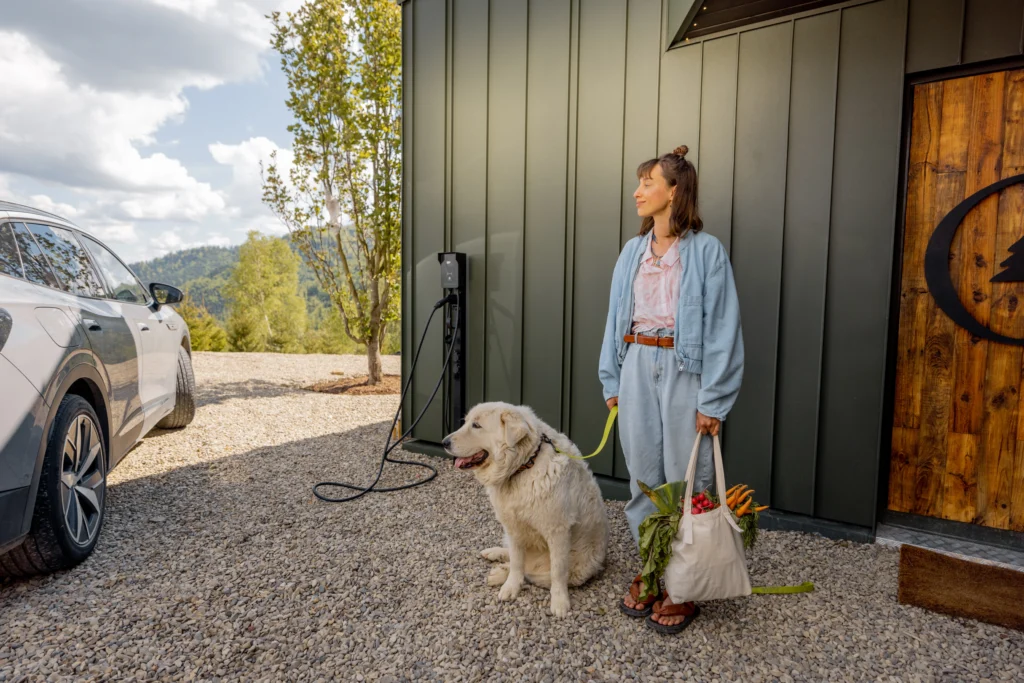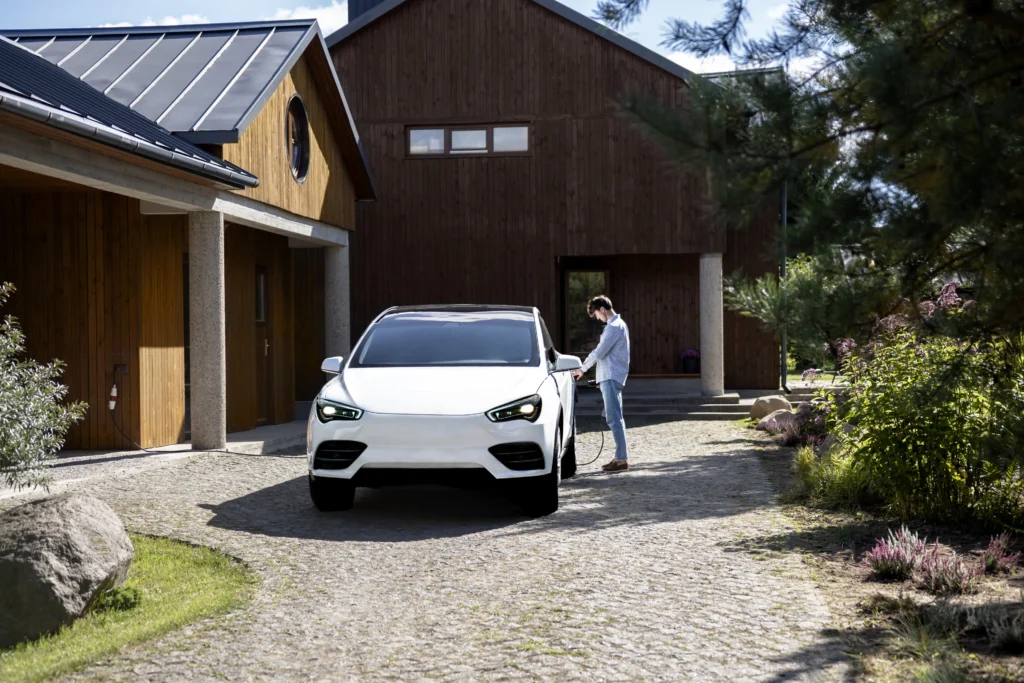The issue of making it simple and easy to charge up electric vehicles is one that a whole industry sector is concerned with. After an early period when a number of different, competing formats for plugs and sockets were tried, this important part of the EV charging infrastructure is now, largely established in a single direction of travel.
Depending on where you are in the world, however, it is notable that different chargers, charging types plugs and sockets are used. Below, we’ll explain the situation in Europe, specifically in the UK, where The Full EV is based.

Understanding Home EV Chargers
If you are able to have an electric vehicle charger fitted at home, you will find this an extremely convenient way to recharge an EV. Simply plug in your car before bedtime, and it will be refuelled when you wake up in the morning, ready for your next trip. An increasing number of utility and electricity companies are making cheap overnight rates available, further reducing the already low cost of running an electric car.
For charging your EV at home, the European marketplace has standardised on one single connector type, the Type 2 socket and plug. The Type 2 has emerged as the preferred standard, after some earlier EVs were launched with different connectors, and now all cars sold in the UK are supplied with a Type 2 charging cable.
All home and workplace chargers are also fitted with a Type 2 socket or a tethered charging cable with a Type 2 plug on the end. The choice between a socketed charger, or one with a tethered (permanently attached) cable is down to you, how often you will charge your car, and visual considerations around having a charger with a cable rolled around it, versus a neater socket-only unit.
Are Home EV Chargers Universal?
All modern home vehicle chargers sold across the UK and Europe have a Type 2 connector, whether a socket or a tethered cable, as standard. There are still a small number of older, second-hand electric vehicles on the UK market that have a different connector on the vehicle. However these can be charged using a cable with a Type 2 connector on the charger end, and the alternative connector on the other end. Typically this cable will be supplied with the car.
You should also be aware of one other connector type commonly used for rapid DC chargers, of the type found at locations such as motorway service areas. These have a CCS (or Combined Charging System) socket on the end of their attached cables. This socket is larger than a Type 2 socket and will fit into most modern EVs to allow rapid charging – typically around half an hour, or less, to fill from 20% to 80%. You may also occasionally see CHAdeMO charging plugs at rapid chargers, these are an older standard used by some second-hand Nissan EVs, but this connector is largely being phased out in Europe.
What to Consider When Choosing a Charger?
How can you be sure that your charger is not going to be obsolete? There are a few things to consider, in a space where technology is changing fast.
First, ensure you obtain a smart charger. These are internet-connected, allowing for easy remote control using a smartphone app, and will also usually be cloud-connected to a manufacturer network – so they can be fed with updates over the air when needed.
Additionally, some chargers are integrated with systems developed by utility companies providing domestic electricity. These systems allow charging to be switched on and off to maximise the use of green power and minimise stress on the electricity grid. While these systems are live, they are still being developed, and more chargers are likely to be integrated in the future.
As is often the case, you can do your own research or seek advice from an expert. At The Full EV, we drive EVs and use chargers ourselves, so we will ask the right questions to offer you the best solution for your particular circumstances.

Conclusion
Most modern electric vehicles will work with what is increasingly the sector standard, with Type 2 sockets and chargers for AC charging at home or work. And, for rapid charging on the go, the CCS socket will be the one in use. But to be sure you are buying the right charger for your location, be sure to ask The Full EV to help you choose correctly.
Ensure your home charger works with your EV and beyond. Contact The Full EV today for professional advice and installation tailored to your needs.


